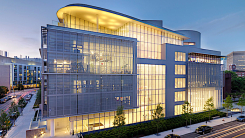Law degrees are among the most challenging and widely respected degrees. They are the starting point of any legal career, followed by the bar exam of the state you will be practicing in. Lawyers may work in many different environments, such as private practice, corporations, government, or non-profits. Some lawyers do not even work in the legal field but in related areas such as counseling, arbitration, politics, or business.
The most common law degrees are:
-
Juris Doctor (JD): A JD degree is a requirement to practice law in the United States. You have to have a bachelor’s degree to be accepted into a JD program. Generally, this program takes about three years to complete.
-
Master of Laws (LLM): Unlike most master’s degrees, the Master of Law degree is to be taken after graduating from a JD degree. In essence, it allows you to specialize in specific areas of the law, such as taxation, environmental law, technology, and more. This program takes about one year to complete.
-
Doctor of Juridical Science (SJD): A Doctor of Juridical Science is the highest law degree granted in the United States. It will qualify you to work as a law professor in academic environments. The program can be finished in three years full-time. To apply for this degree, you will generally need to have a JD degree or an LLM degree and many years of practical work experience as a lawyer.
There are a number of related degrees in the legal area:
-
General Legal Studies: This is a four-year bachelor's degree and focuses on a broad understanding of the law without a law degree. Graduates of this degree often work in courts, government, or law offices or move on to study law.
-
Paralegal/Legal Assistant: Paralegals and legal assistants do support work for lawyers, including research, managing documents, and organizing files. Generally, an associate degree is required for this job, which takes about two years.
Law Schools in Boston
Following are the Boston area law schools comparing cost, size, acceptance rate, location, and degrees. The schools are listed by the number of students attending, not rank. Please click on the school name for more information.
| School | Tuition | Size | Acceptance | Location | Law Degrees |
| Boston Unversity | 20% | ||||
| Harvard University | 16% | ||||
| Northeastern School of Law | 37% | ||||
| Boston College Law School | 25% | ||||
| Suffolk University Law School | 70% | ||||
| New England Law Boston | 71% | ||||
| Massachusetts School of Law | 65% |
Legal Programs at Universities and Four-Year Colleges
Following are the Boston area colleges and universities with legal degrees comparing cost, size, acceptance rate, location, and degrees. The schools are listed by the number of students attending, not rank. Please click on the school name for more information.
| School | Tuition | Selectivity | Size | Location | Legal Studies Degrees - Popular Majors |
| Boston Unversity | Popular: Law Degree, Foreign Lawyers, Banking, Corporate and Securities Law, Tax Law, International Business Law |
||||
| Harvard University | Popular: Law Degree, General Legal Studies |
||||
| Northeastern University | Popular: Law Degree, Legal Research, General Legal Studies |
||||
| University of Massachusetts | Popular: Law Degree |
||||
| Boston College | Popular: Law Degree, General Legal Studies |
||||
| Tufts University | Popular: International Law |
||||
| Suffolk University | Popular: Law Degree, General Legal Studies, Paralegal |
||||
| Lasell College> | Popular: General Legal Studies |
||||
| Fisher College | Popular: Paralegal |
||||
| Amherst College | Popular: General Legal Studies |
Legal Programs at Two-Year Colleges and Community Colleges
Following are the Boston area two-year colleges with legal degrees comparing cost, size, acceptance rate, location, and degrees. The schools are listed by the number of students attending, not rank. Please click on the school name for more information.
| School | Tuition | Selectivity | Size | Location | Degrees |
| Quincy College | Popular: Paralegal |
||||
| Bunker Hill Community College | Popular: Paralegal |
||||
| North Shore Community College | Popular: Paralegal, Legal Secretary |
||||
| Northern Essex Community College | Popular: Paralegal |
||||
| Massachusetts Bay Community College | Popular: Paralegal |















































